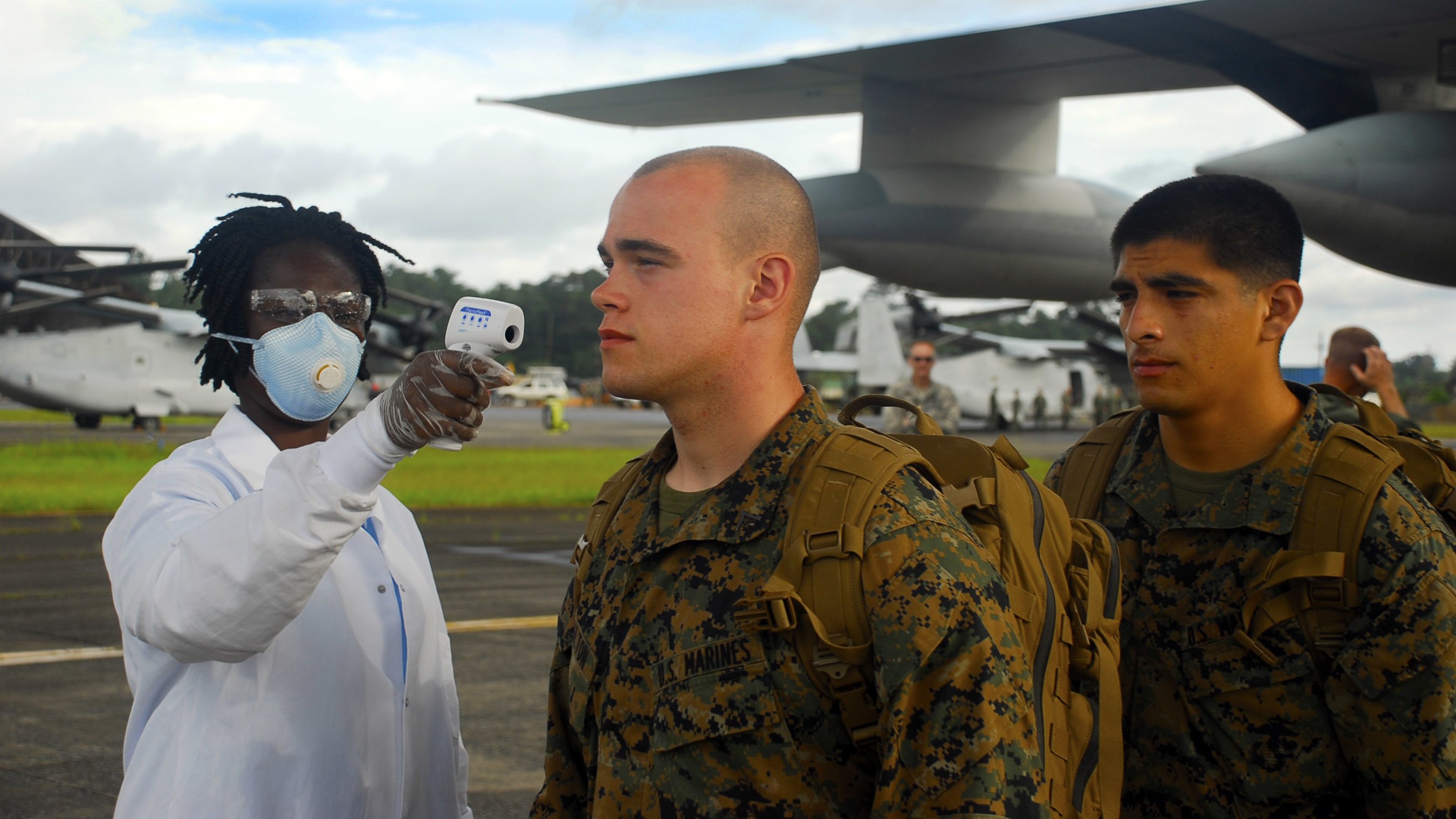The U.S. military is bringing home all but 100 troops sent to West Africa 10 months ago to support efforts to battle the Ebola epidemic, the Pentagon announced Tuesday in a press release.
“At the height of the epidemic, there were 2,800 DoD [Department of Defense] personnel deployed to West Africa,” Pentagon press secretary Rear Adm. John Kirby said. “Given the success of the U.S. response to the crisis, the majority of DoD personnel in West Africa will now return home.
“Today, around 1,500 of them are already back to their duty stations and nearly all will return by April 30. All have or will undergo established controlled monitoring procedures.”
Kirby said about 100 military service members will remain in West Africa to support the 10,000 civilian responders who remain.
These service members will “build on a strong military partnership with the Armed Forces of Liberia to enhance their Ebola response efforts and provide disaster response training to the government of Liberia,” he said.
There have been more than 22,000 reported confirmed, probable and suspected cases of Ebola since the outbreak began, with almost 8,800 known deaths.
The World Health Organization said last month that the number of new Ebola cases reported in the three worst-hit countries — Liberia, Sierra Leone and Guinea — fell to its lowest level since late June. WHO said the response has shifted from slowing transmission to ending the epidemic.
The White House said President Barack Obama will host some of the people responsible for the success of the U.S. response on Wednesday.
“This response showcased American leadership at its finest on the world stage, just as we came together as a nation to fortify our domestic resilience in the face of understandable apprehension,” the White House said in a news release. “To be sure, our tasks are far from complete; we will keep working to meet this challenge until there are zero cases in West Africa and our domestic infrastructure is fully completed.”
Rajiv Shah, administrator for the U.S. Agency for International Development, praised the military’s performance.
“Military engineers oversaw the building of new Ebola Treatment Units; military logisticians directed the deployment of life-saving resources from across the globe; and military doctors supported the brave men and women who treated patients every day,” Shah said in a news release.
“Just 10 months since the first U.S. government personnel deployed, we have delivered extraordinary results. Across West Africa, cases are down by 80 percent. In Liberia — once the heart of the epidemic — we’ve helped cut down new cases from more than 30 a day to as few as one or two.”



